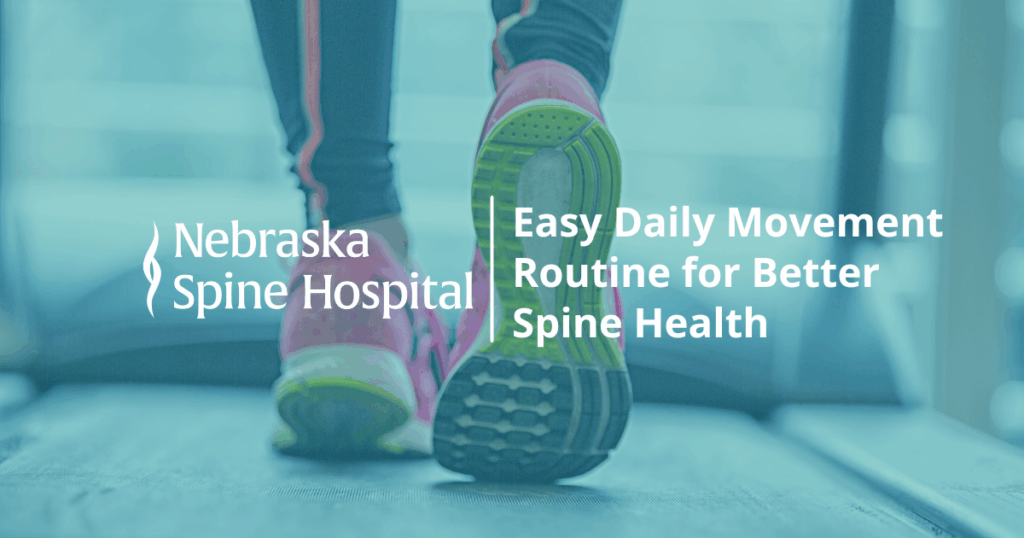Maintaining a healthy spine plays a critical role in your overall well-being. Your spine provides stability, flexibility, and protection for your nervous system, enabling you to perform everyday tasks with ease. Yet, certain daily habits can unknowingly harm your spine, potentially leading to discomfort or long-term issues. By recognizing these risky behaviors and making small changes, you can improve your spinal health and quality of life.
Here are five common habits that could be negatively affecting your spine—and the adjustments you can make to protect it.
1. Poor Posture
Slouching while sitting or standing puts undue pressure on your spine, particularly the lower back. Over time, poor posture can lead to misalignment, muscle strain, or even chronic conditions like kyphosis (a forward-curving spine). Whether you’re at a desk or hunched over a smartphone, prolonged periods of poor posture mean excess strain on the muscles and ligaments that support your spine.
Tips for Better Posture
- Mindfully Align: Keep your shoulders back, chin parallel to the ground, and ears aligned with your shoulders whether sitting or standing.
- Choose Supportive Seating: When sitting, use a chair with proper lumbar support and keep your feet flat on the floor.
- Take Breaks: If working at a desk, check your posture hourly. Stand up, stretch, or walk around to reset your natural alignment.
2. Prolonged Sitting
Spending most of the day seated—whether behind a desk, in a car, or on the couch—can weaken the stabilizing muscles around your spine and increase pressure on spinal discs. Prolonged sitting also promotes tight hip flexors, which can pull on your lower back and exaggerate spinal stress.
Tips to Counteract Prolonged Sitting
- Stand and Move: Aim to stand up and move around for at least 5 minutes every hour.
- Consider an Adjustable Desk: Standing desks allow you to alternate between sitting and standing positions throughout your workday.
- Practice Core Strengthening Exercises: Strengthen your core with simple exercises like planks to support your back and minimize the harm caused by sitting.
3. Improper Lifting Techniques
Lifting heavy items using improper form—such as bending from the waist instead of the knees—can cause immediate injuries like muscle strains, slipped discs, or even lower back sprains. Over time, repetitive lifting without proper posture can wear down spinal structures, leading to chronic conditions.
Tips for Safe Lifting
- Lift with Your Legs: Bend your knees, keep your back straight, and use the strength of your legs to lift objects.
- Avoid Twisting Motions: While holding a heavy load, pivot your feet rather than twisting your torso.
- Know Your Limits: Don’t attempt to lift items that feel too heavy; ask for help or use lifting equipment when necessary.
4. Carrying Heavy Bags
Shoulder bags, backpacks, or purses loaded with heavy items can create an uneven pull on your spine, leading to muscle strain and imbalance over time. The extra weight forces one side of your body to overcompensate, which can result in poor posture, discomfort, and long-lasting issues like scoliosis or back pain.
Tips for Carrying Bags Safely
- Lighten the Load: Regularly declutter your bag and only carry essentials to minimize weight.
- Choose an Ergonomic Bag: Opt for a backpack with two wide, padded straps, and wear it on both shoulders to distribute weight evenly.
- Alternate Shoulders: If using a one-strap bag, alternate the side on which you carry it throughout the day.
5. Lack of Regular Exercise
A sedentary lifestyle weakens core muscles, which are essential for supporting your spine. Without regular activity, you may also experience reduced flexibility and poor circulation, which are vital for maintaining healthy spinal discs and joints. Over time, this inactivity increases your risk of developing chronic back pain or stiffness.
Tips to Stay Active
- Stretch Daily: Begin your day with gentle stretches, focusing on your back, shoulders, and hips to promote flexibility.
- Engage in Low-Impact Activities: Activities like walking, swimming, or yoga strengthen your muscles without putting excessive strain on your spine.
- Strength Train Safely: Incorporate exercises that target the back and core, such as Pilates or resistance training, to enhance overall spinal support.
Protect Your Spine—It’s Worth the Effort
Your spinal health is important not only for physical comfort but for staying mobile and active in all areas of life. By addressing these habits and making incremental changes, you can reduce the risk of spine problems and live a healthier, pain-free life.
If you’re already experiencing back or neck discomfort, it may be time to seek professional help. At Nebraska Spine Hospital, we specialize in diagnosing and treating a wide array of spinal conditions. Our experts are dedicated to creating personalized care plans that help you regain your freedom of movement.









